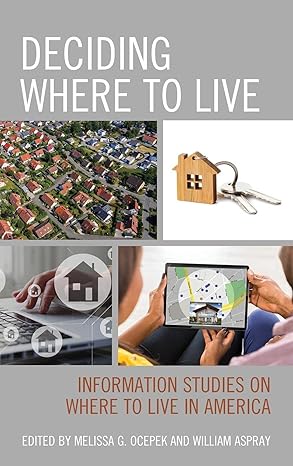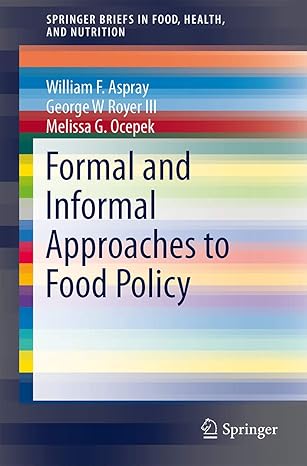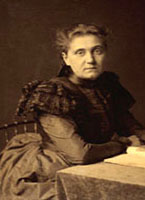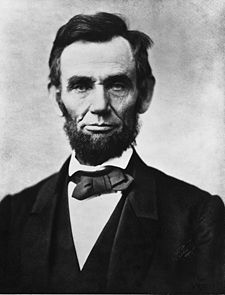
Melissa G. Ocepek
Born:
Connection to Illinois: Ocepek has been at the University of Illinois Urbana-Champaign since 2015. Biography: Melissa G. Ocepek is an Assistant Professor at the University of Illinois Urbana-Champaign in the School of Information Sciences. Her research draws on ethnographic methods and institutional ethnography to explore how individuals use information in their everyday lives. Her research interests include everyday information behavior, critical theory, and food. Dr. Ocepek has published two books that address the intersection of food, information, and culture: Food in the Internet Age and Formal and Informal Approaches to Food Policy (both with William Aspray and George Royer). Dr. Ocepek received her Ph.D. at the University of Texas at Austin in the School of Information.
Awards:
Web: https://melissaocepek.wordpress.com/
WorldCat: http://www.worldcat.org/search?q=Melissa++G.++Ocepek
Selected Titles
 |
Deciding Where to Live: Information Studies on Where to Live in America ISBN: 1538139693 OCLC: 1183398817 Rowman & Littlefield Publishers 2020 Deciding Where to Live: Information Studies on Where to Live in America explores major themes related to where to live in America, not only about the acquisition of a home but also the ways in which where one lives relates to one’s cultural identity. It shows how changes in media and information technology are shaping both our housing choices and our understanding of the meaning of personal place. The work is written using widely accessible language but supported by a strong academic foundation from information studies and other humanities and social science disciplines. Chapters analyze everyday information behavior related to questions about where to live. The eleven major chapters are: Chapter 1: Where to live as an information problem: three contemporary examples Chapter 2: Turning in place: Real estate agents and the move from information custodians to information brokers Chapter 3: The Evolving Residential Real Estate Information Ecosystem: The Rise of Zillow Chapter 4: Privacy, Surveillance, and the “Smart Home” Chapter 5: This Old House, Fixer Upper, and Better Homes & Gardens: The Housing Crisis and Media Sources Chapter 6: A Community Responds to Growth: An Information Story About What Makes for a Good Place to Live." Chapter 7: The Valley Between Us: The meta-hodology of racial segregation in Milwaukee, Wisconsin Chapter 8: Modeling Hope: Boundary Objects and Design Patterns in a Heartland Heterotopia Chapter 9: Home buying in Everyday Life: How Emotion and Time Pressure Shape High Stakes Deciders’ Information Behavior Chapter 10: In Search of Home: Examining Information Seeking and Sources That Help African Americans Determine Where to Live Chapter 11: Where to Live in Retirement: A Complex Information Problem While the book is partly about the goal-directed activity of individuals who want to buy a house, and the infrastructure that supports that activity, it is also about personal activities that are either not goal directed or are directed at other goals such as deciding in which geographic location to live, personal entertainment, cultural understanding, or identity formation. |
 |
Formal and Informal Approaches to Food Policy ISBN: 3319049658 OCLC: 877955264 Springer 2014 Formal approaches are those taken by government bodies through laws, court decisions and actions of government regulatory bodies. Informal approaches are those taken by individuals, non profit organizations, industries working at self-regulation, etc. Because the formal means are tied to a particular legal system, this kind of approach is nation-specific and the book focuses on the United States. But many of the things the authors have to say about US food policy and the interactions between formal and informal approaches would also be of interest to policymakers and food industry professionals in other countries. Coverage includes the regulation of food advertising on children's television and the internet, regulation of school lunch programs and the influence of Eleanor Roosevelt and Michelle Obama. |
| Governing Misinformation in Everyday Knowledge Commons ISBN: 1009255150 OCLC: 1434070364 Cambridge University Press 2024 Governing Misinformation in Everyday Knowledge Commons delves into the complex issue of misinformation in our daily lives. The book synthesizes three scholarly traditions - everyday life, misinformation, and governing knowledge commons - to present 10 case studies of online and offline communities tackling diverse dilemmas regarding truth and information quality. The book highlights how communities manage issues of credibility, trust, and information quality continuously, to mitigate the impact of misinformation when possible. It also explores how social norms and intentional governance evolve to distinguish between problematic disinformation and little white lies. Through a coproduction of governance and (mis-)information, the book raises a set of ethical, economic, political, social, and technological questions that require systematic study and careful deliberation. This title is also available as Open Access on Cambridge Core. |




